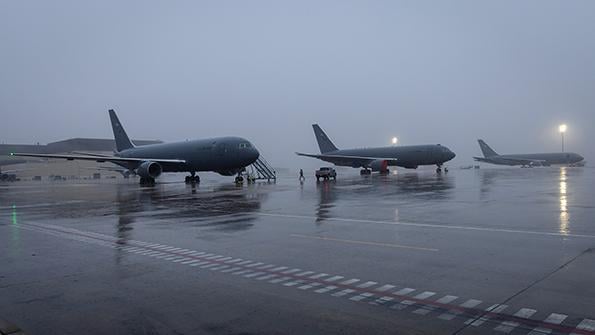
Three KC-46s wait on the flightline at Joint Base McGuire-Dix-Lakehurst in New Jersey. The base has received the only KC-46s delivered so far this year.
Credit: Mark C. Olsen/New Jersey National Guard
New Delivery Delay Adds To Boeing KC-46 Woes is part of our Aviation Week & Space Technology - Inside MRO and AWIN subscriptions.
Subscribe now to read this content, plus receive full coverage of what's next in technology from the experts trusted by the commercial aircraft MRO community.
Already a subscriber to AWST or an AWIN customer? Log in with your existing email and password.





